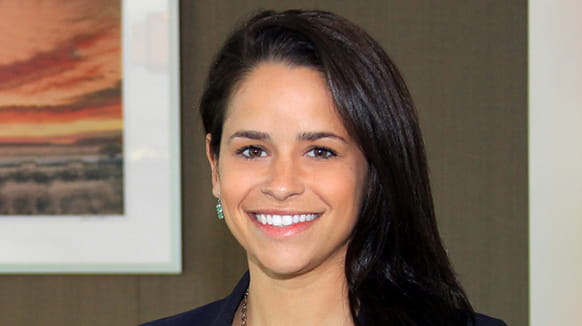Producers and their capital providers have endured one of the most significant periods of commodity price volatility in recent memory. The narrowing of the pool of oil and gas financing capital providers is a predictable consequence of this financial volatility. Additionally, some lenders and equity investors have shied away from the industry due to ESG concerns. Producers, as prospective borrowers and equity issuers, are facing strong pressure to clean up their balance sheets and keep them clean, which disincentivizes incurring new debt. Similarly, capital providers are being confronted with a smaller pool of credit-worthy borrowers and tighter underwriting requirements due to pricing volatility. Under this backdrop, both producers and energy capital providers face significant barriers to entry when it comes to traditional financing arrangements.
The sale of a volumetric production payment (“VPP”) is an attractive alternative financing mechanism available to both producers seeking capital and providers looking to finance oil and gas operations. VPPs offer important benefits to both sides of an energy financing transaction. Producers are afforded low operational and price risk, and further enjoy favorable tax and accounting treatment of the financing mechanism. The sale of a VPP is generally treated as a loan for federal income tax purposes, which allows for delayed recognition of any capital gains associated with the transaction. Despite this classification under the Internal Revenue Code, a VPP may be treated as a sale for accounting purposes, which allows the producer to avoid adding debt to its balance sheet. The ability to classify the transaction as a sale takes on increased importance due to the aforementioned heighted scrutiny on producer’s financials. Capital providers are also presented with certain inducements, in the form of risk mitigation features, which incentivize the VPP as an alternative financing mechanism. Protections for capital providers notably include the Bankruptcy Code’s preferential treatment of a VPP in the event of a producer’s filing.
Traditional VPP transaction parties include the producer who sells/conveys a VPP to the capital provider purchasing such VPP (referred to as the “VPP Holder”). A VPP is a non-operating, non-expense bearing, limited term overriding royalty interest carved out of a producer’s working interests in certain identified oil and gas leases (“VPP Leases”). The VPP Holder makes an upfront cash payment to the producer in consideration for a pre-determined volume of production to be delivered by the producer out of the monthly production attributable to the producer’s interest in the VPP Leases. Because the upfront payment that the producer receives is treated as a loan for federal income tax purposes, the producer does not recognize income from its receipt. The required deliveries (or payments) by the producer to the VPP Holder in connection with the VPP are characterized as part nontaxable principal repayment and part interest, the payment of which is deductible by the producer and income to the VPP Holder. VPPs allow the VPP Holder to elect (i) that its interest in the production be delivered by the producer in the form of production proceeds or (ii) to take its interest in the production “in kind” in lieu of proceeds from the sale of thereof. Any shortfalls in monthly delivery of production or the proceeds from the sale therefrom are typically handled by having the producer deliver such overdue production or proceeds from the VPP Leases during the next delivery period. Note, however, that VPPs are usually carefully arranged to economically compel the producer to deliver from substitute volumes from its retained interest in the VPP Leases to avoid a shortfall. When the scheduled volume of production or associated proceeds have been delivered to the VPP Holder, the VPP, which in most states is treated as a real property interest, will revert back to the producer.
A producer’s obligations to a VPP Holder are non-recourse. The VPP Holder takes the risk that the properties subject to the VPP will ultimately produce the specified volumes and it has no recourse against the producer or its other assets not burdened by the VPP. Additionally, since the VPP is limited to a specified volume of production over a stated term, a VPP Holder is not entitled to a producer’s production in excess of the VPP Holder’s interest during the life of the VPP or to any of producer’s production after all the scheduled quantities of production have been delivered to the VPP Holder.
Because both a producer and a VPP Holder have an interest in the production from the same oil and gas leases, a producer is incentivized to prudently and diligently operate the properties burdened by the VPP for the benefit of both parties. In the event of a producer’s bankruptcy, properly documented and conveyed VPPs are not considered part of the producer’s bankruptcy estate under the statutory “safe harbors” for production payments included in Section 541(b) of the Bankruptcy Code. This safe harbor provides a VPP Holder with continued access to its share of production (or proceeds thereof) during the pendency of a producer’s bankruptcy.
A VPP transaction is traditionally handled by a variety of documents that memorialize the contractual terms between the parties, transfer legal title of the VPP from the producer to the VPP Holder, and delineate details regarding the transfer of production, including whether the producer will market the VPP Holder’s production on its behalf. The VPP Holder should also consider entering into additional agreements that provide for diligence reviews of historic production volumes, precautionary mortgages, commodity hedges and interest rate swaps.
A VPP transaction provides a simple structure that benefits both the producer and the VPP Holder, but it is critically important that all parties seek tax and legal counsel to adhere to specific federal income tax, bankruptcy code and the real property laws of the state where the VPP Leases are located to ensure that these benefits will withstand scrutiny and challenge.
For additional information or assistance, please contact Kraig Grahmann, Michael Threet, Ellen Conley or Roy Schwartz at Haynes Boone.


